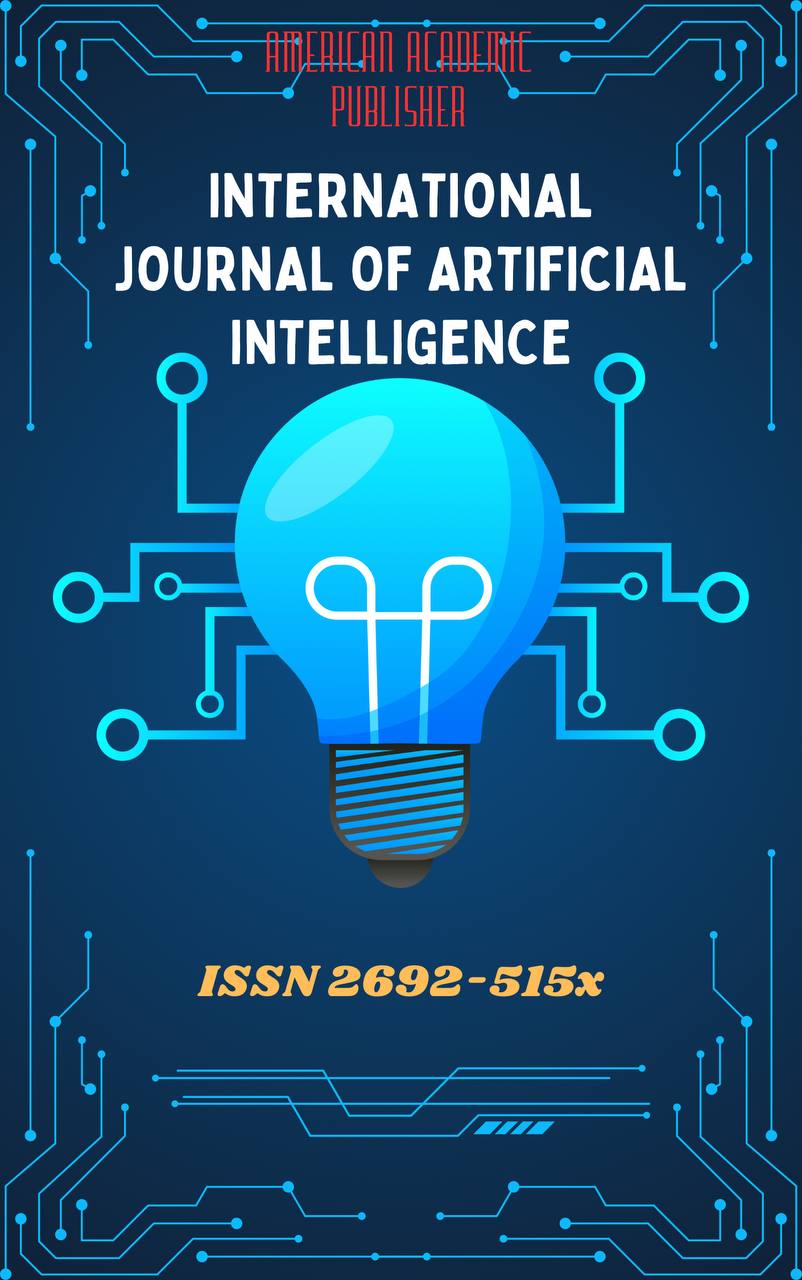 Articles
| Open Access |
Articles
| Open Access | TECHNOLOGY OF APPLYING ARTIFICIAL INTELLIGENCE SYSTEMS IN EDUCATION
Fayzullayeva Kamola Sayfutdin kizi , Assistant, department of economic theory, Tashkent state university of economicsAbstract
This article explores the integration of artificial intelligence (AI) technologies in the education sector, highlighting key AI technologies such as machine learning, natural language processing, and intelligent tutoring systems. It discusses various applications of AI in personalized learning, automated grading, administrative automation, and virtual learning environments. The article also examines the benefits of AI, including increased accessibility, efficiency, and engagement, alongside challenges like data privacy, bias, and infrastructure limitations. Finally, it considers future directions for AI in education, emphasizing its transformative potential to enhance learning outcomes and educational equity.
Keywords
artificial intelligence, AI in education, machine learning, natural language processing, intelligent tutoring systems, personalized learning, automated grading, educational technology, learning analytics, educational innovation
References
Fryer, L. K., & Carpenter, J. P. (2020). Using chatbots in higher education to enhance learning and student engagement. Journal of Educational Technology Systems, 49(4), 589-608. https://doi.org/10.1177/0047239520925967
Heffernan, N. T., & Heffernan, C. L. (2014). The ASSISTments ecosystem: Building a platform that brings scientists and teachers together for minimally invasive research on human learning and teaching. International Journal of Artificial Intelligence in Education, 24(4), 470-497. https://doi.org/10.1007/s40593-014-0024-x
Luckin, R., Holmes, W., Griffiths, M., & Forcier, L. B. (2016). Intelligence unleashed: An argument for AI in education. Pearson. https://doi.org/10.1007/s13398-014-0173-7.2
Shermis, M. D., & Burstein, J. (Eds.). (2013). Handbook of automated essay evaluation: Current applications and new directions. Routledge.
Siemens, G., & Baker, R. S. J. d. (2012). Learning analytics and educational data mining: Towards communication and collaboration. In Proceedings of the 2nd International Conference on Learning Analytics and Knowledge (pp. 252–254). https://doi.org/10.1145/2330601.2330661
Slade, S., & Prinsloo, P. (2013). Learning analytics: Ethical issues and dilemmas. American Behavioral Scientist, 57(10), 1510-1529. https://doi.org/10.1177/0002764213479366
VanLehn, K. (2011). The relative effectiveness of human tutoring, intelligent tutoring systems, and other tutoring systems. Educational Psychologist, 46(4), 197-221. https://doi.org/10.1080/00461520.2011.611369
Williamson, B., & Piattoeva, N. (2020). Objectivity as standardization in data-scientific educational governance: Grasping the global through the local. Research in Education, 101(1), 69-92. https://doi.org/10.1177/0034523719887399
Article Statistics
Downloads
Copyright License

This work is licensed under a Creative Commons Attribution 4.0 International License.

